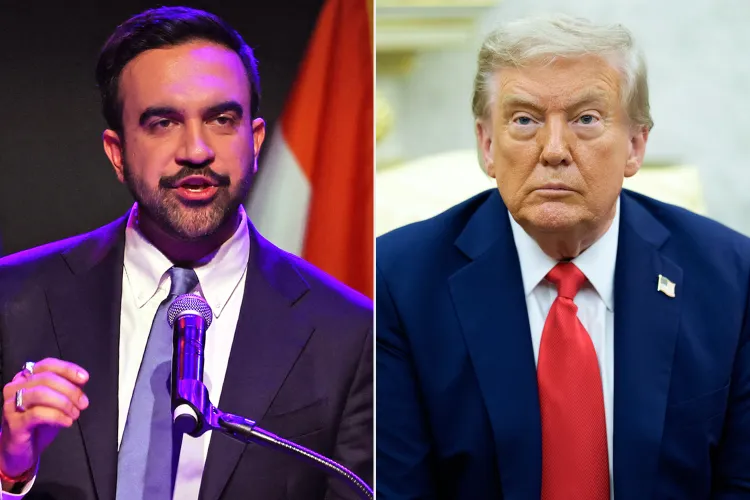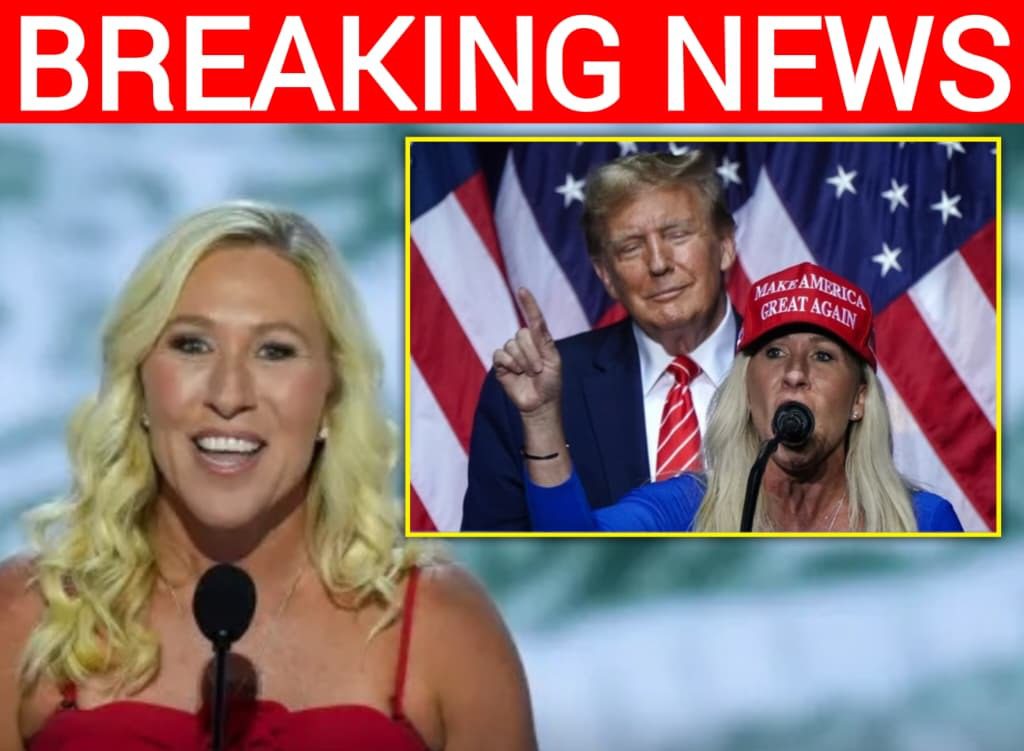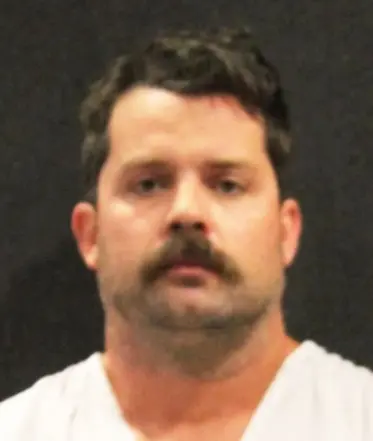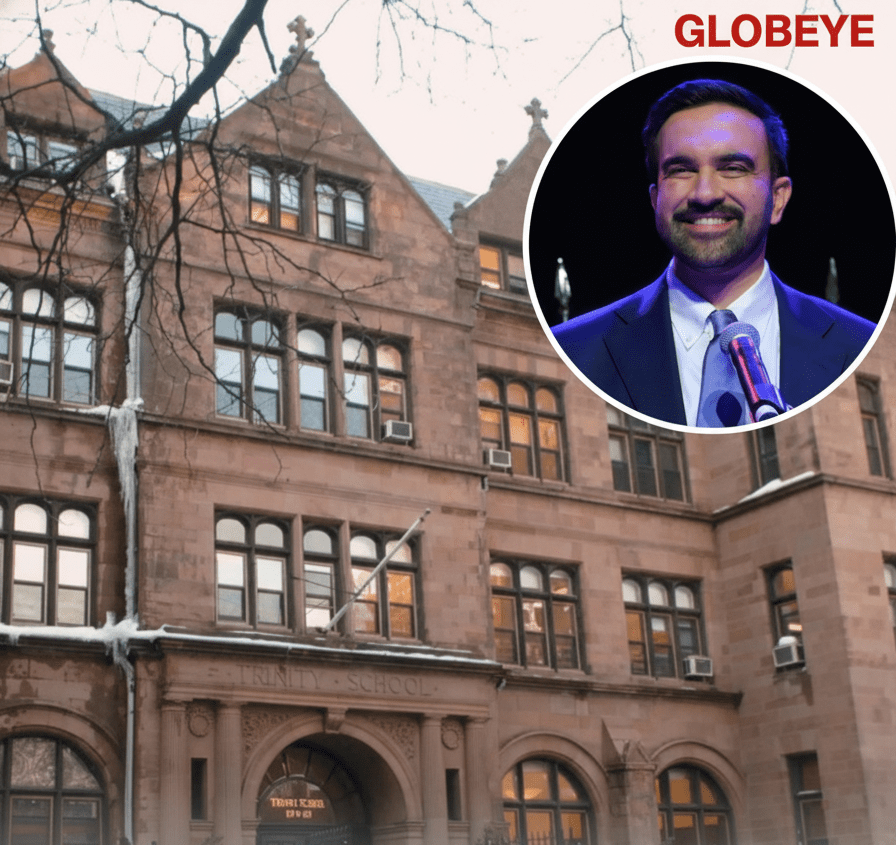“Since I Know You’re Watching”: NYC Mayor-Elect Zohran Mamdani Takes Aim at Donald Trump in His Fiery Election-Night Speech That Shook the City
The crowd was electric inside Brooklyn’s Industry City on election night as Zohran Mamdani, the 34-year-old progressive lawmaker from Queens, stepped to the microphone. Moments earlier, every major network had projected him as the next mayor of New York City — defeating two political heavyweights, Andrew Cuomo and Curtis Sliwa, in a stunning landslide that no one saw coming a year ago. But instead of the standard speech filled with thanks and promises, Mamdani’s first words drew the loudest cheers of the night. Looking straight into the cameras, he grinned and said, “Donald Trump, since I know you’re watching, I have four words for you: turn the volume up.”
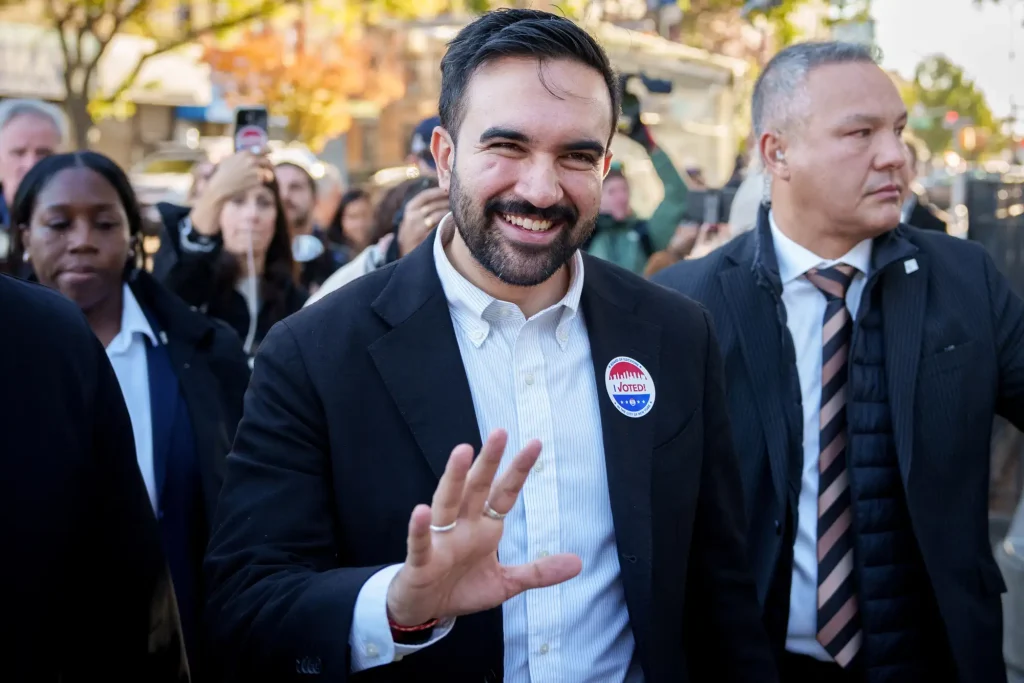
The line instantly went viral. Within minutes, clips of the moment flooded social media, drawing millions of views on X and TikTok. The message was unmistakable — Mamdani wasn’t just celebrating a victory. He was firing a warning shot at one of his most powerful critics, the former president himself. For supporters in the room, it was catharsis. For critics, it was provocation. For Mamdani, it was a declaration that a new era in New York politics had begun.
The 2025 mayoral race had already been one of the most unpredictable in modern memory. Mamdani, a Democratic Socialist and son of Ugandan-Indian immigrants, entered the race as an underdog. Cuomo, a former governor attempting a comeback, dominated early polling, while Sliwa, the veteran Republican firebrand, ran a law-and-order campaign tailored for conservative neighborhoods. But Mamdani’s grassroots approach — rallies in working-class districts, door-to-door canvassing, and relentless focus on affordability — ignited a movement that grew faster than anyone anticipated. By election night, the tide had turned.
When the results came in, Mamdani didn’t just win — he redefined the political map. His coalition spanned young voters, renters, immigrants, and union workers who had felt ignored by establishment politics. His win was seen as a clear rejection of corporate influence and billionaire power in city government. That made his words about Trump not just a personal jab, but a symbolic one. In one moment, he turned his acceptance speech into a statement about who he believed New York really belongs to.
“Trump represents the same forces that have squeezed New Yorkers for decades,” Mamdani told the roaring crowd. “Landlords who profit from pain. Developers who build for wealth, not people. Politicians who promise everything and deliver nothing. Well, tonight, New York spoke — and we said no more.” The message was bold, unapologetic, and perfectly in tune with the populist energy that carried him to victory.
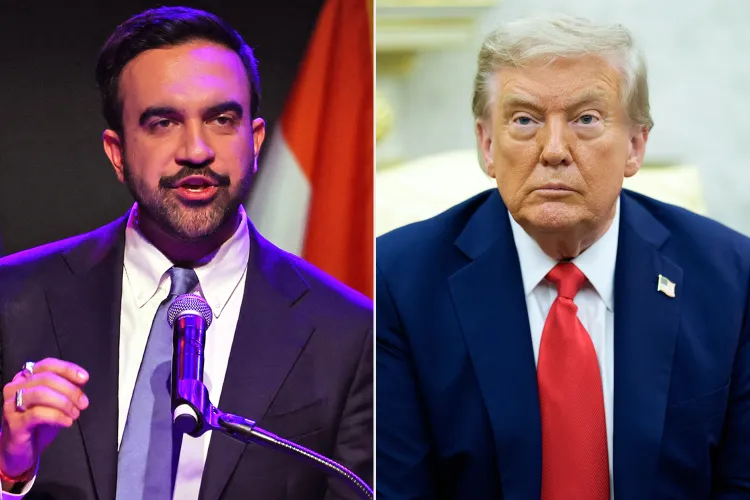
Trump, for his part, had taken repeated swipes at Mamdani throughout the campaign. During an August rally in New Jersey, the former president mocked Mamdani’s socialist platform, calling him “the guy who wants to turn Manhattan into Havana.” He later warned that federal funding could be “reconsidered” if New York City “chose radical leadership.” Those comments became rallying fuel for Mamdani’s campaign. He even used Trump’s words in fundraising emails, telling supporters that “when the billionaire landlords and ex-presidents panic, it means we’re winning.”
The victory speech didn’t shy away from confrontation. “To anyone who said a working-class New Yorker can’t run this city, you were wrong,” Mamdani said. “To the billionaires who think they own it — good luck keeping up. And to Donald Trump, who built towers on our skyline and debts on our backs — we’re coming for your kind of politics.” The crowd erupted again, chanting his name as confetti filled the air.
Behind the fiery rhetoric was a deeper message about accountability and change. Mamdani’s campaign had centered on rent control, city-owned grocery stores, a millionaire’s tax, and universal childcare — policies he said would put working families first. “We will make the city livable again,” he vowed. “Not for the few, but for everyone.” His words resonated with those struggling under rising rents and stagnant wages, offering a new kind of hope — one that felt distinctly New York but carried national implications.
Mamdani’s pointed reference to Trump wasn’t accidental. As reporters later confirmed, Trump had been watching election coverage from his Mar-a-Lago estate. His aides told Page Six that he “laughed off” Mamdani’s remarks but privately fumed at the attention they drew. Within hours, Trump posted on Truth Social: “ANOTHER RADICAL LEFTIST RUINS NEW YORK — DISASTER COMING SOON!” Mamdani responded the next morning with a simple message: “We’ve already survived you. We’ll survive this.”
Political observers were quick to draw parallels between the two men — not in ideology, but in charisma and command of spectacle. “Trump mastered the art of political theater,” one analyst told People. “Mamdani just flipped it on him.” Unlike many politicians who shy away from Trump’s shadow, Mamdani confronted it head-on — reclaiming the spotlight to define his own message. In a media-saturated landscape, it worked. By Wednesday morning, “Turn The Volume Up” was trending nationwide.
But beyond the viral moments and social media reactions lies a serious challenge ahead. Mamdani’s ambitious platform will face resistance from business leaders, real-estate lobbies, and the state legislature. Critics warn his promises may be financially unrealistic, while allies see a once-in-a-generation chance to reshape the city’s priorities. Even Mamdani acknowledged the uphill battle in his speech: “Tomorrow, the hard part begins. We build. We govern. We deliver.”
Still, for one night, optimism ruled. Supporters flooded the streets of Jackson Heights, waving flags and chanting his name. A projection on the Queens Museum read “The People’s City,” while subway performers sang Bob Marley’s “Get Up, Stand Up” at Union Square station. It was the kind of jubilation New York hadn’t seen since the 2008 Obama wave — only this time, it was hyperlocal and homegrown.
The symbolism of his message to Trump carried through every layer of that celebration. Mamdani wasn’t just speaking to one man — he was speaking to an idea of power itself, an idea rooted in wealth, privilege, and fear. His campaign’s slogan, “The City Belongs to Us,” now feels like both promise and warning.
As dawn broke over Manhattan the next morning, newspaper stands were already sold out of copies featuring his image on the front page. Headlines captured the duality of the moment: a working-class mayor, a defiant message, a city reborn through confrontation. Whether Mamdani can translate that momentum into lasting reform remains to be seen, but one thing is clear — he’s not afraid to speak his mind, even to the most powerful figures in the country.
For now, his victory speech stands as one of the defining political moments of the year: fiery, fearless, and deeply New York. A 34-year-old immigrant’s son, standing on a stage in Brooklyn, looked into the camera and told a former president to “turn the volume up.” In a city built on noise, ambition, and defiance, it was the perfect line — and the perfect way to announce that a new voice has arrived.
